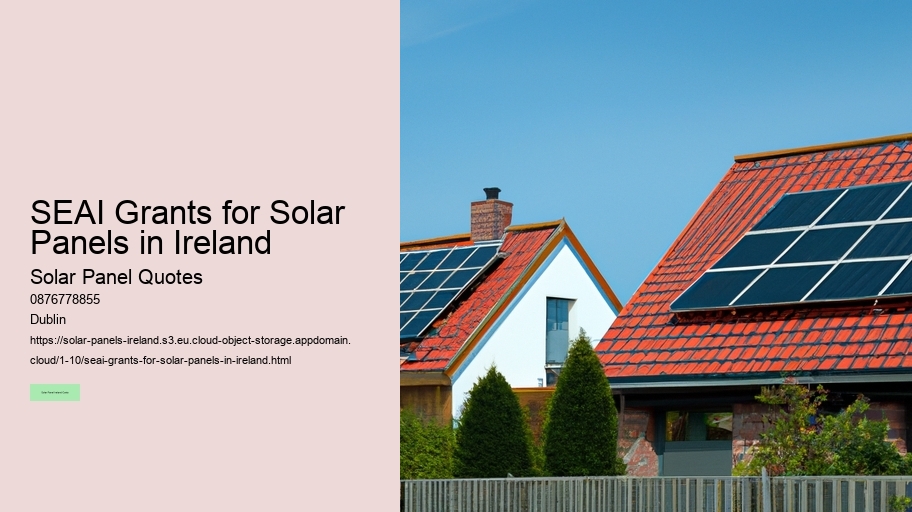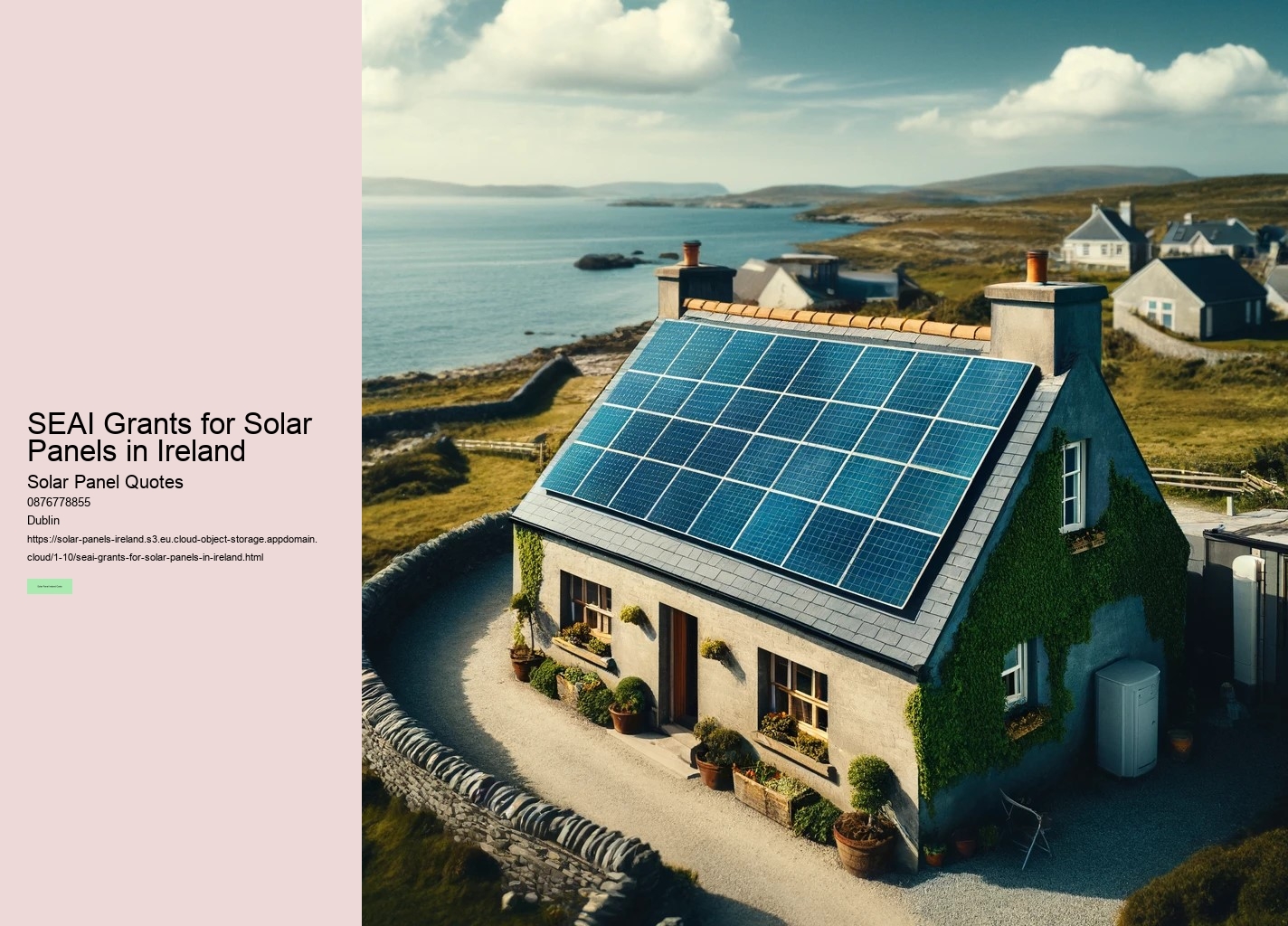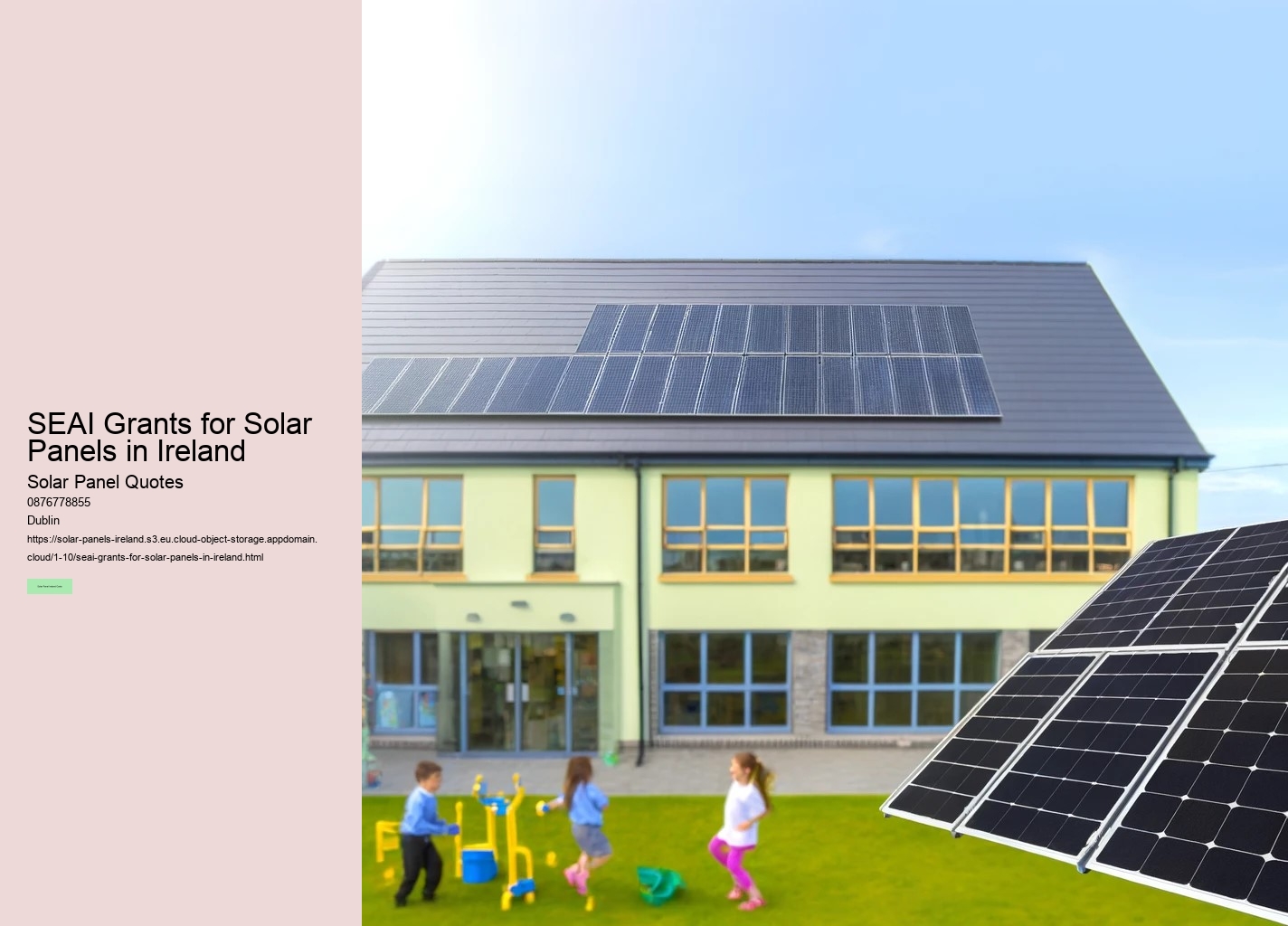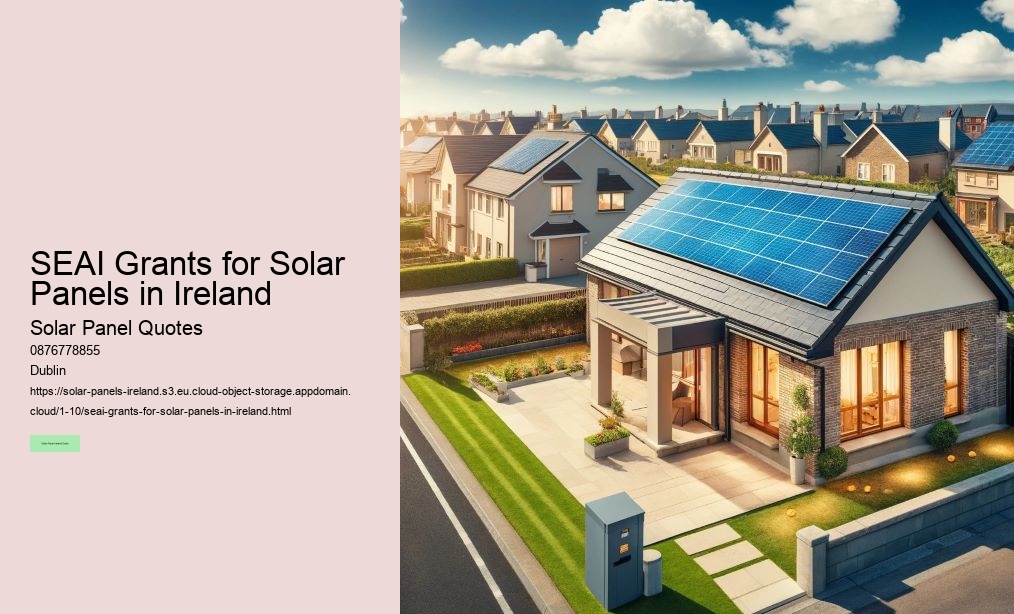

Incorporating solar panels into a home's energy system is a step toward sustainability. These systems work seamlessly with electric heating solutions, hybrid vehicles, and even solar water heating systems to deliver a comprehensive approach to energy sustainability. Questions: checkout solar panel Ireland cost for Solar Panel Quotes. Integrating solar panels with other energy-efficient technologies enhances their utility.
Energy storage is an important consideration for those investing in solar panels. Choosing the right solar system requires careful consideration of individual needs.
During this time, homeowners benefit from significant reductions in their electricity bills, often saving up to €1,000 annually. The adoption of solar energy is not only about lowering your energy bills but also about embracing a lifestyle that reduces greenhouse gas emissions and supports sustainability.
The cost of adding a battery depends on the size and capacity, but it can make the system more efficient and provide peace of mind during power disruptions. Choosing solar energy is not just about lowering electricity bills; it's about embracing a sustainable lifestyle.
These systems integrate seamlessly with existing setups, reducing overall energy consumption and costs. They allow for better energy management, ensuring that solar power can be used during peak consumption times or when sunlight is unavailable. By integrating solar panels into the national grid, homeowners contribute to the growth of renewable energy in the country. Beyond improving energy efficiency, batteries provide backup power during outages and enhance independence from the electrical grid. These include the number of panels needed, the type of technology used, and the installation requirements of the property.
Advances in solar technology have also improved the durability and efficiency of modern panels, making them a reliable long-term investment. A professional site assessment ensures the system is tailored to your property's specific conditions, maximizing efficiency. Furthermore, households can generate up to 70% of their energy needs through solar power, further decreasing reliance on the electrical grid.

Similarly, integrating solar panels with a home energy storage system provides a reliable energy supply during power outages, ensuring continuity for essential appliances. Solar panels have become an increasingly popular choice for homeowners and businesses looking to reduce their electricity expenses and contribute to sustainable energy development. By choosing solar panels, homeowners in Ireland can harness the power of the Sun to meet their energy needs. This added value aligns with global trends in efficient energy use and sustainable living. Additionally, Thin-film solar cells are available for specific applications, adding versatility to the photovoltaic system market.
Thin-film solar cells, though less common, may provide a more cost-effective option for specific installations. Potential buyers are increasingly interested in homes equipped with energy-efficient systems like rooftop photovoltaic systems and solar thermal collectors. Solar panels offer additional value by increasing property attractiveness and market value. The microgeneration of solar power also enables homeowners to feed excess electricity back into the grid, earning credits through Ireland's feed-in tariff system.
Rechargeable batteries allow homeowners to store excess energy generated during the day for use at night or during periods of low sunlight. When selecting a solar panel provider, it's important to consider factors such as experience, certifications, and customer reviews. For Irish homeowners, the investment typically ranges between €6,000 and €18,000, influenced by factors such as system size, energy needs, and optional features like energy storage. The Sustainable Energy Authority of Ireland (SEAI) offers grants of up to €2,400 for solar PV installations, while the removal of VAT on solar panels since May 2023 further reduces upfront costs.
Solar panel systems in Ireland have become more accessible thanks to financial incentives and technological advancements. In terms of cost-effectiveness analysis, solar panels stand out as a smart investment. These features make it easier for homeowners to manage their energy systems and maximize savings.
This variation depends on several factors, including the number of panels, the type and quality of the solar cells, and whether additional components like battery storage or optimizers for shading are included. Additionally, solar panels can fulfill up to 70% of a household's electricity and water heating needs, further enhancing their cost-effectiveness.
The installation cost depends on various elements, including the number of panels required to meet your household's energy consumption, the type of solar panels used, and optional features like energy storage. By consulting with solar panel companies, homeowners can receive personalized recommendations based on their specific energy needs and roof conditions.
Solar power can also be used in conjunction with other energy-efficient technologies, such as electric vehicles, to further reduce household energy consumption and carbon emissions. This combination can help meet both electricity and hot water heating needs.


This time frame reflects the savings from reduced electricity bills and income generated from exporting surplus energy back to the grid through the Microgeneration Support Scheme. These measures reflect Ireland's commitment to sustainable development and encourage more homeowners to transition to renewable energy.
For most homes, the number of solar panels required depends on factors like electricity consumption, roof size, and orientation.
The cost of solar panels in Ireland typically ranges between €6,000 and €18,000.
Energy consumption varies across households, so the system size is a critical factor in determining costs.
On average, solar panels pay for themselves within five to seven years, depending on the size of the system and energy usage. Monocrystalline panels are ideal for those seeking maximum efficiency, while polycrystalline panels offer a more affordable solution with solid performance.
Advanced systems allow for seamless integration with hybrid vehicles and electric vehicle battery chargers, making them a smart investment for homes transitioning to sustainable energy.
These batteries can also provide backup power during grid outages, ensuring reliability and reducing dependence on the electrical grid.
The benefits of solar panels extend beyond individual households.

This grant, coupled with the zero VAT rate introduced in 2023, makes the upfront cost of solar panels more accessible. Ireland's variable climate might raise concerns about solar energy's reliability, but advancements in solar technology ensure consistent performance.
Selecting the right type of solar panels depends on individual needs and site conditions.
Monocrystalline panels, known for their high efficiency, are ideal for properties with limited space, as they produce more electricity per square meter.
With the installation of a smart meter, homeowners can track their energy production and consumption, optimizing the system's financial returns.

While solar panel efficiency can be impacted by Ireland’s variable weather, modern technology allows panels to still generate significant energy even on cloudy days.
Yes, installing solar panels can increase home value by improving energy efficiency and attractiveness to potential buyers who value sustainability.